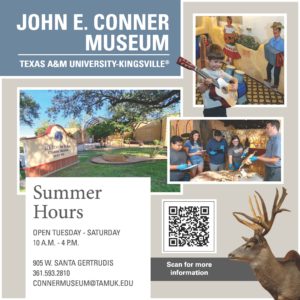Almost every school in Texas is experiencing budget cuts, and drops in enrollment, and Texas A&M University-Kingsville is no exception.
For the 2017-2018 fiscal year TAMUK lost $12 million based on loss of students, but because of healthy reserves, President Dr. Steven Tallant was allowed to take $5 million from the university’s savings. But that still left TAMUK short $7 million dollars, so big decisions were made.
In order to balance the budget, TAMUK had to cut positions by 3 percent, 10 percent from in operations, and hold a hiring freeze.
“I’m proud of this university, the deans, faculty and staff. We had to make significant cuts, but we got through it,” Tallant said.
However, these cuts and drops in enrollment are not directly caused by the university, but because of the current political climate which has made it very difficult for international students to obtain their visas. Two years ago, the average percentage of TAMUK international students who got their visas was 80 percent; this year it is 19 percent.
The university lost 800 master-level students in engineering in the course of two years, dropping international student enrollment at the graduate level by 107 when comparing Spring 2018 to the current semester. While the enrollment center tries to remain positive that the students will return, TAMUK administrators are brainstorming plans. The College of Engineering was one of the most affected areas.
“Loss of students directly relates to the loss of revenue. We had to eliminate eight unfulfilled faculty positions and three unfulfilled staff positions to accommodate the budget short fall,” Mohammad S. Alam, dean of the college of engineering, said.
But Tallant has a long-term plan. He suggests that the university starts acting like a private institution. In 1967 Texas covered approximately 90 percent of tuition costs, in 2018 Texas presently covers 28 percent. Despite that decline, Texas is generous compared to other states. But Tallant believes TAMUK needs to have more campaigns, fundraisers and donation dinners so that TAMUK can be more self-sufficient.
The With you, Without Limits campaign has raised more than $60 million of its $100 million goal. This means that now TAMUK has an endowment fund of $105 million, making TAMUK only the 13th public university in Texas history to go over the $100 million mark. This boost in revenue is attributed to students’ love for Javelina nation, alumni and people caring about the university. “We’ve done extremely well,” Tallant said.
For the 2018-2019 school year TAMUK must find or make additional budget cuts of approximately $2.5 million, or $4 million at most. The plan so far is to only fill positions of imperative importance, leave other positions vacant, and recruit at domestic levels. And now, the college has more than $30 million in reserves-which can help the university during the 2018-2019 fiscal year.
Tallant is also planning on asking the state for $65 million to build the College of Health Professionals with $3 million every year for operations. There are three main reasons as to why the university administration believes the program is needed. First, because data shows that South Texas has a shortage of healthcare professionals. Secondly, because these programs and degrees will lead to good paying jobs, and lastly, because nobody else offers these programs in the area. Unfortunately, these plans would not take place for approximately another two years, provided the state grants the funding request.
But apart from all the declining numbers TAMUK’s freshman population has actually grown 15 percent.
Dr. Terisa Riley, senior vice president for fiscal and student affairs, planned and continues alongside her team to encourage students to enroll at TAMUK, which she says offers a more personal atmosphere.
“I feel like every student is so important and so valued and should feel so respected. I think at a time when our budget is the way it is, it actually helps everyone to see how every student counts. And we’re at a campus the size of ours where you know students. People’s aren’t numbers, they’re names, and they’re individuals,” Riley said.
